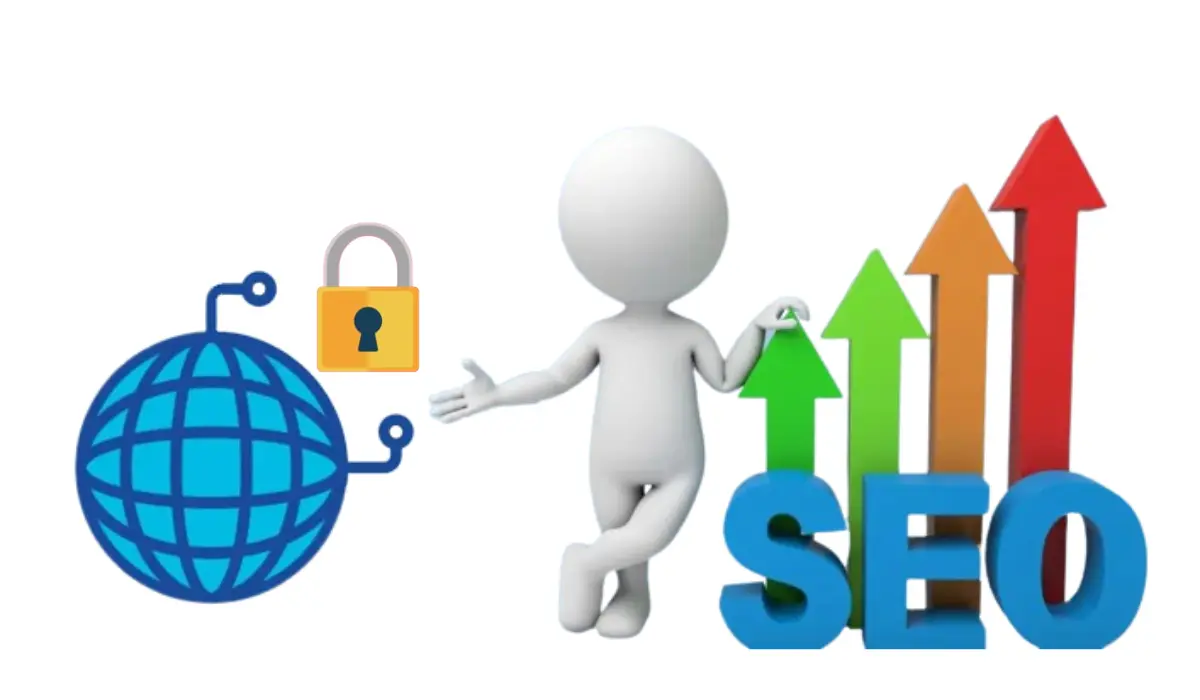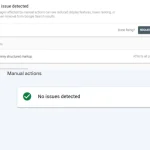In the digital age, where online presence is paramount for businesses of all sizes, the importance of web security cannot be overstated. As search engine algorithms continue to evolve, factors such as website security are playing an increasingly significant role in determining search engine rankings. In this article, we’ll explore the importance of web security in SEO (Search Engine Optimization) and why prioritizing security measures is essential for maintaining visibility and credibility in the online landscape.
Importance of Web Security in SEO
In the intricate web of online operations, where visibility and credibility reign supreme, the nexus between web security and Search Engine Optimization (SEO) is more vital than ever. Here, we uncover the pivotal role web security plays in bolstering SEO efforts and why businesses cannot afford to overlook this symbiotic relationship.
Trust is Paramount:
In the digital realm, trust forms the bedrock of user engagement and brand loyalty. Secure websites, protected by robust encryption protocols like SSL/TLS, signal to both users and search engines that they can trust the information exchanged on the site. When users feel confident about their data security, they are more likely to engage with the website, resulting in longer dwell times and decreased bounce rates—factors that search engines consider favorably in their ranking algorithms.
Guarding Against Cyber Threats:
Cyberattacks pose a significant threat to the integrity and stability of websites, ranging from malware infections and phishing scams to DDoS (Distributed Denial of Service) attacks and SQL injections. These malicious activities not only disrupt website functionality but also compromise user safety and trust.
Furthermore, search engines often flag and remove compromised websites from search results to prevent users from accessing potentially harmful content.
By implementing security measures such as firewalls, antivirus software, and regular security audits, website owners can mitigate the risk of cyber threats and ensure the uninterrupted availability of their sites. From an SEO perspective, proactive measures to protect against cyberattacks signal to search engines that your website is secure and reliable, resulting in improved search rankings and visibility.
Upholding User Experience:
Web security is closely intertwined with user experience. Secure and good websites provide a safe and seamless browsing environment for visitors. From SSL-encrypted connections to HTTPS protocols and secure login mechanisms, implementing security features enhances user confidence and encourages engagement. Conversely, websites that lack adequate security measures may deter users due to concerns about privacy, identity theft, or malware infections.
Search engines prioritize user experience as a key ranking factor, considering metrics such as bounce rate, time on site, and mobile-friendliness when evaluating website relevance and authority. Secure websites that prioritize user safety and data protection are more likely to deliver a positive user experience, leading to higher engagement metrics and improved SEO performance.
Mobile-Friendly and Secure:
The ubiquity of mobile devices underscores the need for mobile-friendly and secure websites. Mobile users demand convenience and security in equal measure. Websites optimized for mobile devices and secured with HTTPS encryption enjoy a competitive edge in search rankings. Search engines prioritize mobile-friendly websites, recognizing their importance in catering to the growing mobile user base. Furthermore, secure mobile experiences bolster user trust, resulting in enhanced SEO performance.
Protecting User Data:
One of the primary objectives of web security is to safeguard sensitive information, such as personal and financial data, from unauthorized access and exploitation. From login credentials and payment details to contact information, users entrust websites with valuable data, expecting it to be handled responsibly and securely. Failure to protect this data not only jeopardizes user privacy but also undermines trust and confidence in the brand.
From an SEO standpoint, websites that prioritize security measures to protect user data are perceived as more trustworthy and reliable by search engines. Search algorithms consider factors such as SSL/TLS encryption, secure payment gateways, and adherence to data protection regulations (e.g., GDPR) when evaluating website credibility and user experience. Therefore, investing in robust web security not only protects users but also enhances the reputation and authority of your website, positively impacting SEO performance.
Also Read
Tips to Enhance Web Security
Enhancing web security is a critical aspect of maintaining a safe and trustworthy online presence. Here are some key tips to help bolster the security of your website:
Keep Software Updated:
Regularly update your website’s software, including content management systems (CMS), plugins, themes, and server software. Updates often include security patches that address vulnerabilities and protect against known threats.
Use HTTPS Encryption:
Implement HTTPS encryption to secure data transmitted between your website and users’ browsers. This helps protect sensitive information, such as login credentials, payment details, and personal data, from interception by malicious actors.
Strong Password Policies:
Enforce strong password policies for user accounts, including a minimum length, combination of letters, numbers, and special characters, and regular password changes. Consider implementing multi-factor authentication (MFA) for an added layer of security.
Firewall Protection:
Utilize a web application firewall (WAF) to monitor and filter incoming web traffic, blocking malicious requests and preventing attacks such as SQL injections, cross-site scripting (XSS), and DDoS attacks.
Regular Security Audits:
Conduct regular security audits of your website to identify vulnerabilities, misconfigurations, and potential security weaknesses. This can include code reviews, vulnerability scans, penetration testing, and security assessments by third-party experts.
Backup Your Data:
Implement regular backups of your website data, including files, databases, and configurations. Store backups securely offsite, preferably in encrypted form, to ensure data integrity and availability in the event of a security incident or data loss.
Secure Hosting Environment:
Choose a reputable hosting provider that prioritizes security and offers robust security measures, such as server-side firewalls, intrusion detection/prevention systems (IDS/IPS), and regular security updates. Consider using a dedicated server or virtual private server (VPS) for enhanced control and isolation.
Implement Content Security Policy (CSP):
Deploy Content Security Policy (CSP) headers to mitigate the risks of cross-site scripting (XSS) attacks by controlling which resources can be loaded and executed on your website. CSP helps prevent unauthorized execution of malicious scripts and protects against data theft.
User Input Validation:
Validate and sanitize user input to prevent injection attacks, such as SQL injection and XSS. Use secure coding practices and input validation techniques to ensure that user-supplied data is properly handled and sanitized before processing.
Stay Informed and Educated:
Stay abreast of the latest security threats, trends, and best practices by following security blogs, attending conferences, and participating in security communities. Educate yourself and your team about common security risks and how to mitigate them effectively.
Conclusion:
In an increasingly interconnected and data-driven digital landscape, web security is a fundamental aspect of online success. From protecting user data and mitigating cyber threats to enhancing user experience and SEO performance, the importance of web security cannot be overstated. By prioritizing security measures and adhering to best practices, website owners can not only safeguard their online presence but also improve search engine rankings, drive organic traffic, and build trust with their audience. In today’s competitive digital environment, investing in web security is not just a necessity but a strategic imperative for long-term success.





